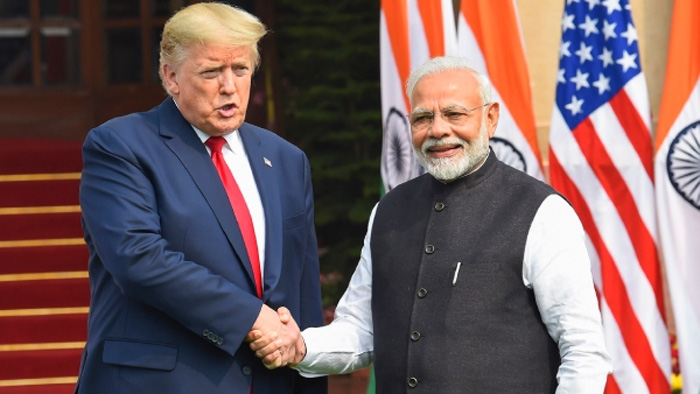What Donald Trump’s Win In US Election 2024 Could Mean For India? His Trade, H-1B Visa, Defence Policies And Geopolitics
Merely a week before the US presidential election, Republican candidate Donald Trump emphasised his commitment to strengthening the “great partnership” between the United States and India.
Calling Prime Minister Narendra Modi his “good friend,” Donald Trump, in a Diwali post on X, vowed to enhance ties between the two nations under his potential administration.
The former president also condemned recent violence against Hindus and other minorities in Bangladesh, where, as reports indicate, hundreds of Hindus have faced deadly attacks in the Muslim-majority country.
Donald Trump’s statement came at a time when exiled Bangladeshi prime minister Sheikh Hasina has sought refuge in India after her ouster, adding complexity to South Asia’s geopolitical tensions.
Donald Trump’s message to the Indian diaspora in the US comes at a strategic time, reinforcing the close relationship he and Narendra Modi share. This camaraderie was evident in past high-profile events such as the “Howdy, Modi!” rally in Texas in 2019, where Trump hosted Modi before an estimated 50,000 people, marking one of the largest-ever US gatherings for a foreign leader.
In 2020, Modi returned the favour, hosting Trump in Gujarat at the world’s largest cricket stadium—Narendra Modi Cricket Stadium—where over 120,000 people gathered to welcome the US president.
This rapport is not just symbolic; it reflects both leaders’ strong nationalist platforms. Modi’s “India First” vision aligns closely with Donald Trump’s “America First” policies, each focused on domestic growth, economic nationalism, and securing national borders.
Donald Trump’s foreign policy, which has consistently emphasised self-interest and strategic partnerships, promises to directly impact India’s economic and defence landscape.
Economic and trade policies
A Donald Trump-led administration would likely prioritise US-centric trade policies, potentially pressuring India to reduce trade barriers or face tariffs. India’s IT, pharmaceuticals, and textile sectors, which export significantly to the US, could be particularly impacted.
In September, Trump, despite criticising India as an “abuser” in terms of import tariffs, referred to Modi as a “fantastic man”.
During a town hall in Flint, Michigan, while discussing trade and tariffs, Trump emphasised, “So when India, which is a very big abuser… These people are the sharpest people. They’re not a little bit backwards… You know the expression, they are at the top of their game, and they use it against us. But India is very tough. Brazil is very tough…. China is the toughest of all, but we were taking care of China with the tariffs.”
Yet, Trump’s push to reduce dependency on China by encouraging American companies to move their supply chains elsewhere could work in India’s favour. With favourable policies, India could attract more US companies looking to diversify operations, boosting its economic prospects.
Defence and security
Donald Trump’s stance on China aligns with India’s concerns, and defence cooperation would likely deepen under his leadership. His administration has previously strengthened the Quad, a security partnership between the US, India, Japan, and Australia, to counter Chinese influence in the Indo-Pacific. Additional joint military exercises, arms sales, and technology transfers could bolster India’s defence capabilities amid tensions with neighbouring countries like China and Pakistan.
Immigration and H-1B visa policies
On immigration, Donald Trump’s restrictive policies, particularly regarding the H-1B visa programme, had substantial impacts on Indian professionals in the US. A return to such policies could complicate Indian workers’ access to American job markets, affecting sectors dependent on skilled Indian workers, particularly in technology. Additionally, stricter immigration laws could prompt Indian tech firms to explore other markets or invest in creating more domestic opportunities.
Geopolitical influence
Donald Trump’s policies in South Asia could also affect India’s regional interests. While Trump has shown a willingness to work with Pakistan, he has insisted on accountability in counter-terrorism efforts, which might balance his approach. However, Trump’s “Peace through strength” mantra could see the US exercising a tougher stance on terrorism and extremism, aligning with India’s security goals.

